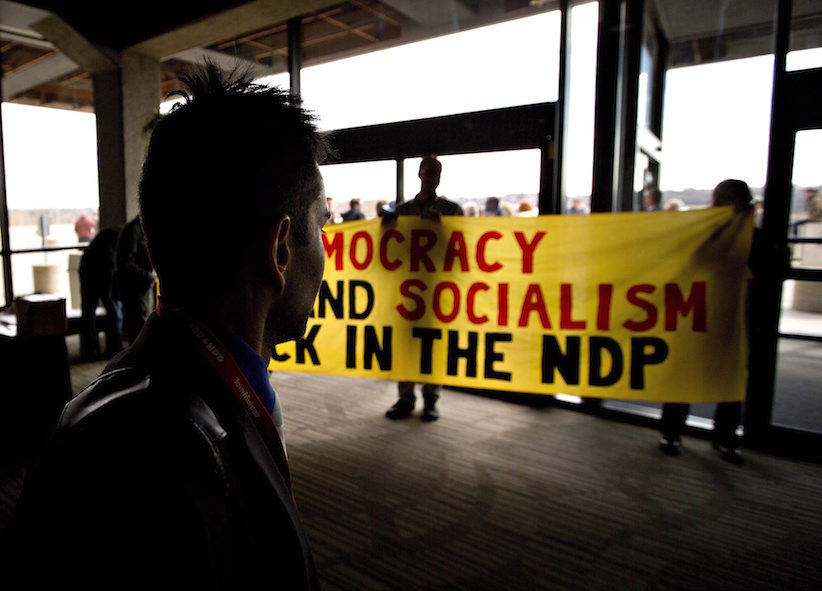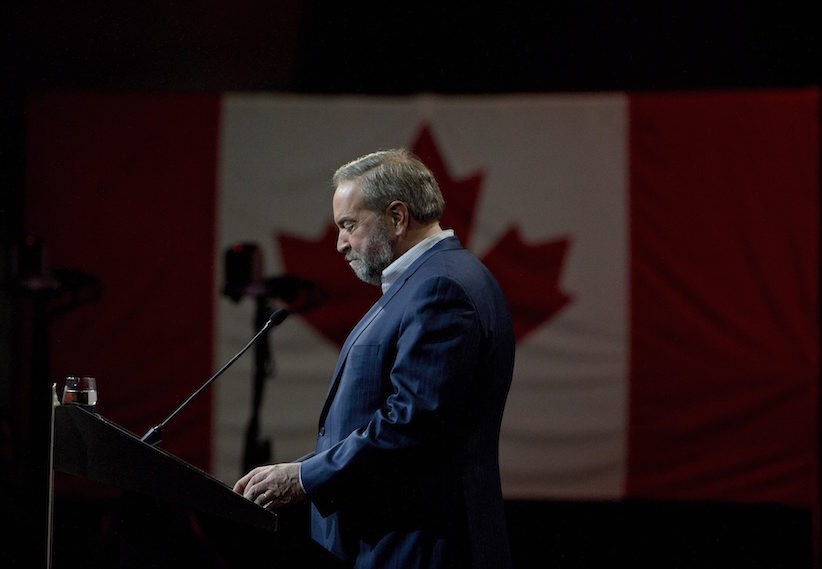The NDP, free at last to … ?
Tom Mulcair lost his party’s support. Now what? Paul Wells on an NDP with big, defining decisions on the docket
Share

It’s good to aim high. In his only election as leader of the NDP, Tom Mulcair led the party to a higher share of the national popular vote than Tommy Douglas, David Lewis, Alexa McDonough and Audrey McLaughlin ever had, and higher than Jack Layton managed to win in the elections of 2004, 2006 and 2008. Not good enough, delegates to the NDP convention declared.
Pack your bags, Tom: the party will reconvene in maybe two years to select a leader from among candidates Mulcair already beat in 2012, unless they prefer to pick a new leader with less experience in the federal NDP than Mulcair himself had.
The new leader must be able to speak to a party with a still-relatively-large caucus of Quebec MPs, while growing its appeal where most NDP voters live, outside Quebec. The risk of getting caught on a whipsaw of public opinion between the two language communities haunted Layton, who was born in Quebec and was wisely leery of the debate over Quebec secession rules. The same split in allegiances finally broke Mulcair, on the question of Muslim headscarves. The next leader needs to be more agile than Layton and Mulcair were along that fault line. No candidate speaks both official languages anywhere nearly as well as Mulcair does; most aren’t close to Layton’s level of fluency.
The NDP did a pretty good job of addressing the Quebec fault line this weekend by opening a new one around Alberta, which contains what will be, by the spring, the only provincial NDP government in the country. That government faces a jobs crisis caused by the collapse in the world price of the commodity that got every out-of-town NDP delegate to Edmonton: Hydrocarbons. Rachel Notley would prefer that Albertans keep working. The extended Lewis family, visiting from Toronto and points south, has a better idea. Delegates did not endorse their Leap Manifesto as such, but voted to ensure the party continues to debate it while searching for a leader.

The manifesto crystallizes an eternal conflict in left-leaning parties between the right of workers to work and the right of highly educated urban literati to express their opinion about how everybody else should live. While he was leader, Layton sought to split the difference with his 2008 platform, which eschewed a broadly applied carbon tax in favour of regulation or cap-and-trade schemes that would hurt “corporations” but not their employees.
A week before last autumn’s election, a senior Mulcair adviser told me the campaign was satisfied at having neutralized the Leap Manifesto by offering as little comment on it as possible. Perhaps that was poor strategy. The NDP will now get to try it a different way.
The choices the NDP made this weekend are legitimate. There is no point holding a leadership vote and arguing that it is somehow morally wrong to vote one way or another. On policy, including Leap, the Ottawa pundit class—including yours truly—is the worst predictor of any idea’s electoral appeal. We are addicted to dubbing the recent consensus as “the centre” and predicting punishment for any deviation. By that measure, the victories of both Stephen Harper and Justin Trudeau could not happen.
So maybe alienating Rachel Notley while looking for a leader who can balance the regional tensions to which the NDP has always been prey is a good idea. We will soon get to find out. As will New Democrats. Their choices this weekend have the virtue of being real choices. They now need a new leader, and they have a new debate—in the temporary absence of that leader—that will open emotional rifts in the party membership. Making decisions is good. Whatever the consequences.